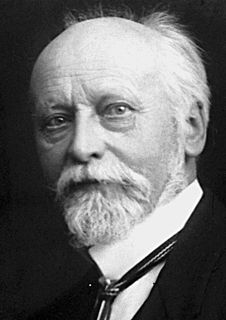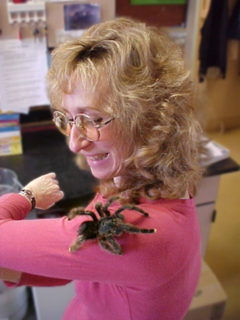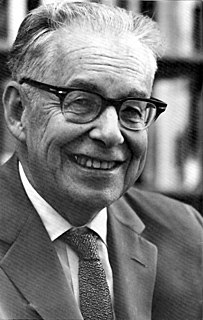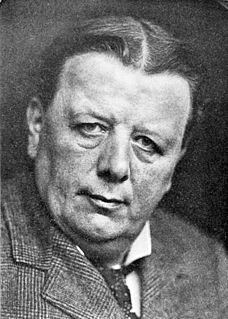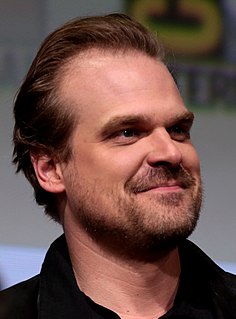A Quote by Aldous Huxley
If humans were in fact the members of a truly social species, and if their individual differences were trifling and could be completely ironed out by appropriate conditioning, then, obviously, there would be no need for liberty and the State would be justified in persecuting the heretics who demanded it.
Related Quotes
From the point of view of the species, death is part of this whole process. You could say that species have evolved in such a way that individual members last a certain time. Perhaps a certain kind of species would be better able to survive if the individuals didn't last too long. Other kinds could last longer.
It was not that I disliked people; some of them were interesting and kind. But even the nice ones were no more compelling or important to me than other creatures. Then, as now, to me humans are but one species among billions of other equally vivid and thrilling lives. I was never drawn to other children simply because they were human. Humans seemed to me a rather bullying species, and I was on the side of the underdog.
We can see now that we Americans were caught unprepared, because we were ordinary human beings, following the best advice we had at the time. No one would have guessed in 1941 that we would be attacked in such an unsportsmanlike manner as we were. No one could have visualized Pearl Harbor, either out there or in Washington. But if we had known then what we know now, we would have expected an attack in 1941.
Our Founding Fathers well understood that concentrated power is the enemy of liberty and the rights of man. They knew that the American experiment in individual liberty, free enterprise and republican self-government could succeed only if power were widely distributed. And since in any society social and political power flow from economic power, they saw that wealth and property would have to be widely distributed among the people of the country. The truth of this insight is immediately apparent.
If you say, "Would there were no wine" because of the drunkards, then you must say, going on by degrees, "Would there were no steel," because of the murderers, "Would there were no night," because of the thieves, "Would there were no light," because of the informers, and "Would there were no women," because of adultery.
It is an odd fact of evolution that we are the only species on Earth capable of creating science and philosophy. There easily could have been another species with some scientific talent, say that of the average human ten-year-old, but not as much as adult humans have; or one that is better than us at physics but worse at biology; or one that is better than us at everything. If there were such creatures all around us, I think we would be more willing to concede that human scientific intelligence might be limited in certain respects.
In fact, if law were restricted to protecting all persons, all liberties, and all properties; if law were nothing more than the organized combination of the individual's right to self-defense; if law were the obstacle, the check, the punisher of all oppression and plunder - is it likely that we citizens would then argue much about the extent of the franchise?
In most ages many countries have had part of their inhabitants in a state of slavery; yet it may be doubted whether slavery can ever be supposed the natural condition of man. It is impossible not to conceive that men in their original state were equal; and very difficult to imagine how one would be subjected to another but by violent compulsion. An individual may, indeed, forfeit his liberty by a crime; but he cannot by that crime forfeit the liberty of his children.
I would have turned any offer down, if it had turned into a thriller. I would have seen no point in a thriller here. I don't need to entertain people, on top of what we were doing. It's not a question of whether he did it or not. I would have thought that was banal and uninteresting, and I wouldn't care. And it could have also turned into a shoot-out because there were a lot of guns in the film.
While ants exist in just the right numbers for the rest of the living world, humans have become too numerous. If we were to vanish today, the land environment would return to the fertile balance that existed before the human population explosion. Only a dozen or so species, among which are the crab louse and a mite that lives in the oil glands of our foreheads, depend on us entirely. But if ants were to disappear, tens of thousands of other plants and animal species would perish also, simplifying and weakening land ecosystems almost everywhere.
The chemical differences among various species and genera of animals and plants are certainly as significant for the history of their origins as the differences in form. If we could define clearly the differences in molecular constitution and functions of different kinds of organisms, there would be possible a more illuminating and deeper understanding of question of the evolutionary reactions of organisms than could ever be expected from morphological considerations.
I did this movie, 'A Walk Among the Tombstones' - I truly play a horrible, horrible individual in that - and I would occasionally go to the theater and watch what people's responses were, and they would laugh. He makes jokes, and people would respond to him in a human way. Then I've really done my job if I've humanized a really horrible person.



